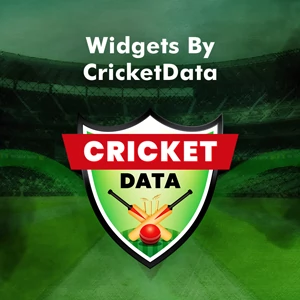The cheapest smartphones don't have all the gizmos of Apple or Samsung models, but I'm impressed by how many features you do get for roughly a third of the price.
Processors are slower, yet that's not so noticeable for basic tasks such as email, Facebook and weather checks. Video and audio are also enjoyable, as long as I'm not expecting the same performance I get on high-end phones. Batteries don't last quite as long without a recharge but I still got about seven hours of streaming video on Hulu. Do I really need the nine to 12 hours I can get with an iPhone or Samsung Galaxy?
Because you spend so much time with your phone, there's a case for having the best. But those come with a price tag starting at about $650 (unless you agree to a two-year contract, in which case you end up paying higher service fees for voice, text and data).
So consider how you use your phone and what features will remain most important to you over the next year or two. Before you break the bank, here are three solid phones that cover the basics:
ZTE Nubia 5S Mini (Android, $280)
The Nubia is a slim, light device with a 4.7-inch screen - the same as the iPhone 6. It looks sleek and is comfortable to hold. What's the catch?
The Nubia's display measures 1,280 pixels by 720 pixels, well short of what you get on the latest iPhones and top-end Samsung Galaxy devices. That resolution is adequate for 720p high-definition video, not the sharper 1020p. The camera is OK for taking everyday shots; pricier models deliver better focus and colors and take nicer low-light photos with the flash off.
However, the front camera for selfies is 5 megapixels, better than the typical phone. (The rear camera takes 13 megapixel shots, which is common.) And it comes with 4G connectivity and 16 gigabytes of memory.
Motorola Moto G (Android, $180)
Motorola has a $129 Moto E phone, and you get a good device at that price. But I've found photos to be subpar, especially because the camera has a fixed-focus lens, meaning it doesn't compensate for how far away your subject is. Given how much people use the camera on their phones, I recommend spending another $50 for the Moto G.
The latest Moto G model has a large 5-inch screen that is covered with Corning's Gorilla Glass for durability, something more common in pricier phones. The Moto G's back is curved, which could contribute to a better grip. Like the Nubia, its display is 1,280 pixels by 720 pixels.
The rear camera is 8 megapixels, the same as the iPhone, though shots weren't as good. The front camera is 2 megapixels.
The Moto G's main shortcoming is the lack of 4G LTE cellular connectivity. You're stuck with the slower 3G network. LTE is available for last year's Moto G model, but that screen is only 4.5 inches and the camera's resolution isn't as good. The Moto G also starts with just 8 gigabytes of memory, when many smartphones are starting to offer 32 gigabytes.
Microsoft Lumia 635 (Windows, $179)
This 4.5-inch device doesn't feel as sleek as top-end Lumia phones such as the Icon and the 1520. But it's better than the $79 Lumia 530, which feels like a bar of soap, given its bulk and smaller screen. It's worth getting the 635 instead, especially as some carriers and retailers are offering substantial discounts to bring its price close to the 530's.
The Lumia 635 has a 5 megapixel rear camera, no flash and no front camera. It performed better than the Nubia and the Moto G in low light. Just don't expect shots to match what the 20-megapixel Icon produces. The display resolution is lower than on the Nubia and the Moto G, and the built-in storage is again just 8 gigabytes.
But the 635 does have 4G connectivity.
Processors are slower, yet that's not so noticeable for basic tasks such as email, Facebook and weather checks. Video and audio are also enjoyable, as long as I'm not expecting the same performance I get on high-end phones. Batteries don't last quite as long without a recharge but I still got about seven hours of streaming video on Hulu. Do I really need the nine to 12 hours I can get with an iPhone or Samsung Galaxy?
Because you spend so much time with your phone, there's a case for having the best. But those come with a price tag starting at about $650 (unless you agree to a two-year contract, in which case you end up paying higher service fees for voice, text and data).
So consider how you use your phone and what features will remain most important to you over the next year or two. Before you break the bank, here are three solid phones that cover the basics:
ZTE Nubia 5S Mini (Android, $280)
The Nubia is a slim, light device with a 4.7-inch screen - the same as the iPhone 6. It looks sleek and is comfortable to hold. What's the catch?
The Nubia's display measures 1,280 pixels by 720 pixels, well short of what you get on the latest iPhones and top-end Samsung Galaxy devices. That resolution is adequate for 720p high-definition video, not the sharper 1020p. The camera is OK for taking everyday shots; pricier models deliver better focus and colors and take nicer low-light photos with the flash off.
However, the front camera for selfies is 5 megapixels, better than the typical phone. (The rear camera takes 13 megapixel shots, which is common.) And it comes with 4G connectivity and 16 gigabytes of memory.
Motorola Moto G (Android, $180)
Motorola has a $129 Moto E phone, and you get a good device at that price. But I've found photos to be subpar, especially because the camera has a fixed-focus lens, meaning it doesn't compensate for how far away your subject is. Given how much people use the camera on their phones, I recommend spending another $50 for the Moto G.
The latest Moto G model has a large 5-inch screen that is covered with Corning's Gorilla Glass for durability, something more common in pricier phones. The Moto G's back is curved, which could contribute to a better grip. Like the Nubia, its display is 1,280 pixels by 720 pixels.
The rear camera is 8 megapixels, the same as the iPhone, though shots weren't as good. The front camera is 2 megapixels.
The Moto G's main shortcoming is the lack of 4G LTE cellular connectivity. You're stuck with the slower 3G network. LTE is available for last year's Moto G model, but that screen is only 4.5 inches and the camera's resolution isn't as good. The Moto G also starts with just 8 gigabytes of memory, when many smartphones are starting to offer 32 gigabytes.
Microsoft Lumia 635 (Windows, $179)
This 4.5-inch device doesn't feel as sleek as top-end Lumia phones such as the Icon and the 1520. But it's better than the $79 Lumia 530, which feels like a bar of soap, given its bulk and smaller screen. It's worth getting the 635 instead, especially as some carriers and retailers are offering substantial discounts to bring its price close to the 530's.
The Lumia 635 has a 5 megapixel rear camera, no flash and no front camera. It performed better than the Nubia and the Moto G in low light. Just don't expect shots to match what the 20-megapixel Icon produces. The display resolution is lower than on the Nubia and the Moto G, and the built-in storage is again just 8 gigabytes.
But the 635 does have 4G connectivity.
















0 comments:
Post a Comment